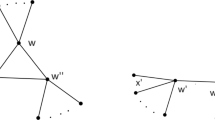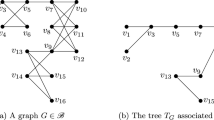Abstract.
We introduce the notion of periodic-like word. It is a word whose longest repeated prefix is not right special. Some different characterizations of this concept are given. In particular, we show that a word w is periodic-like if and only if it has a period not larger than \(|w|-R'_{w}\), where \(R'_{w}\) is the least non-negative integer such that any prefix of w of length $\geq R'_{w}$ is not right special. We derive that if a word w has two periods \(p,q\leq |w|-R'_{w}\), then also the greatest common divisor of p andq is a period ofw. This result is, in fact, an improvement of the theorem of Fine and Wilf. We also prove that the minimal period of a word w is equal to the sum of the minimal periods of its components in a suitable canonical decomposition in periodic-like subwords. Moreover, we characterize periodic-like words having the same set of proper boxes, in terms of the important notion of root-conjugacy. Finally, some new uniqueness conditions for words, related to the maximal box theorem are given.
Similar content being viewed by others
Author information
Authors and Affiliations
Additional information
Received: 10 July 2000 / Accepted: 24 January 2001
Rights and permissions
About this article
Cite this article
Carpi, A., de Luca, A. Periodic-like words, periodicity, and boxes. Acta Informatica 37, 597–618 (2001). https://doi.org/10.1007/PL00013314
Issue Date:
DOI: https://doi.org/10.1007/PL00013314




